From January 29 to 30, Professor Kang Chongqing, the dean of the Department of Electrical Engineering and Applied Electronics (EEA) , led a delegation to visit Imperial College London. They jointly held the 2024 annual meeting of the Tsinghua University-Imperial College London Joint Research Center for Intelligent Power and Energy Systems with the British partners . Assistant Professor Sun Kai, Associate Professor Zhong Haiwang, Assistant Researcher Guo Hongye, and Associate Researcher Du Ershun from the Low-Carbon Energy Laboratory also participated in the visit.
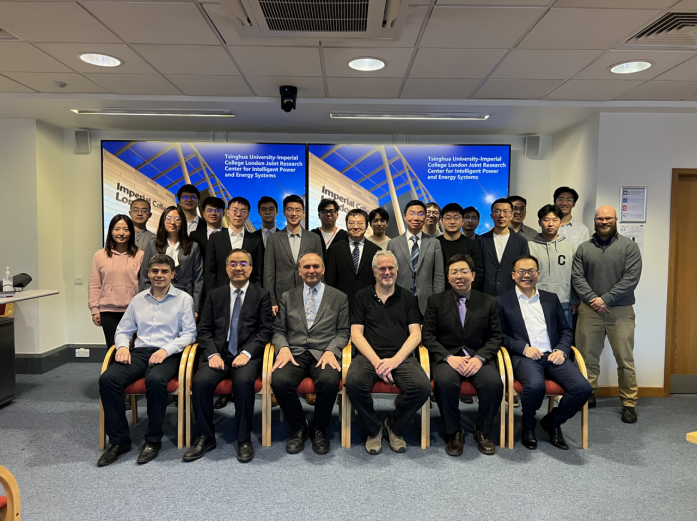
Photograph of attendees
Professor Eric Yeatman, Dean of the Department of Electrical and Electronic Engineering at Imperial College London and Fellow of the Royal Academy of Engineering, and Professor Kang Chongqing, Dean of the Department of Electrical Engineering and Applied Electronics at Tsinghua University, delivered speeches.
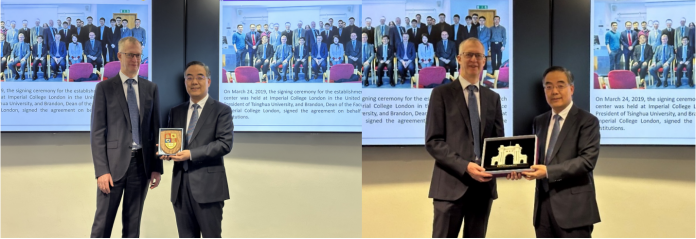
Professor Kang Chongqing and Professor Eric Yeatman exchanged gifts
In his speech, Professor Eric Yeatman warmly welcomed the delegation from the Department of Electrical Engineering at Tsinghua University. He expressed his appreciation for the fruitful cooperation between the two teams despite the challenges posed by the pandemic and international situations. He emphasized the importance of international cooperation in addressing climate change and energy transition.
In his speech, Professor Kang Chongqing stated that since the establishment of the Joint Research Center in March 2019, they were delighted to return to the original signing location to review the cooperation process with their British partners. Despite the severe impact of the pandemic, the collaboration at the Joint Research Center never ceased. The teams from both sides persisted in holding monthly online meetings, jointly undertaking several international cooperation projects, exchanging postdoctoral fellows and graduate students for study visits, co-organizing seven international conference sessions, and multiple international journal special issues. These achievements were the result of the joint efforts of both teams, demonstrating their willingness and ability to contribute to addressing climate change and energy transition.
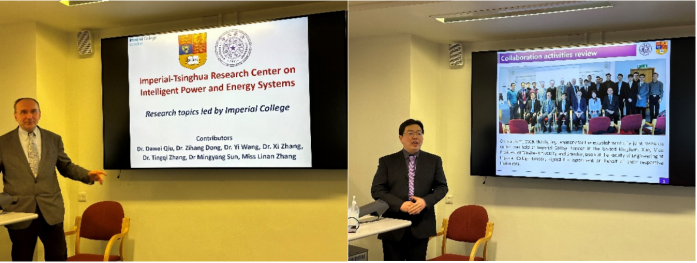
Professor Goran Strbac, Chair of Power and Energy Systems Discipline and British Director of the Tsinghua University-Imperial College London Joint Research Center for Intelligent Power and Energy Systems, and Associate Professor Sun Kai, Chinese Director, reviewed the research achievements produced by Imperial College London and Tsinghua University under the framework of the Joint Research Center. They hoped to deepen exchanges and cooperation between the two sides with the support of the Joint Research Center platform.
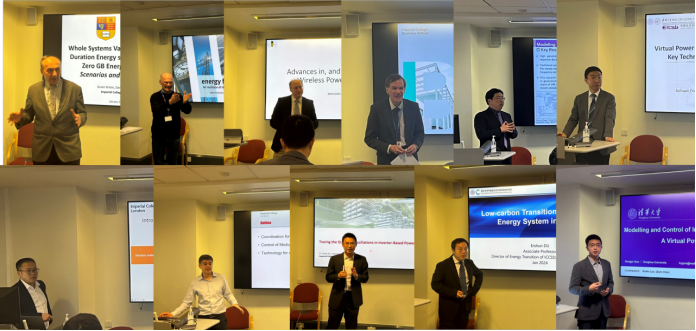
Subsequently, both sides conducted in-depth discussions on the latest research results of power and energy systems under carbon neutrality targets, covering five main topics: power system planning for carbon neutrality strategic objectives (with 2 reports from Imperial College London and 1 report from Tsinghua University), virtual power plant technologies for load-side flexibility (with 1 report from Imperial College London and 2 reports from Tsinghua University), resilience enhancement of power and energy systems (with 2 reports from Imperial College London and 1 report from Tsinghua University), power system optimization considering safety and stability constraints (with 3 reports from Imperial College London and 2 reports from Tsinghua University), and power electronic equipment in novel power systems (with 3 reports from Imperial College London and 1 report from Tsinghua University).
Afterwards, both sides had in-depth discussions on how to advance the construction of the Joint Research Center, future research plans, and how to further strengthen cooperation and exchanges, establishing seven cooperation themes focusing on carbon-neutral power system operation and planning.
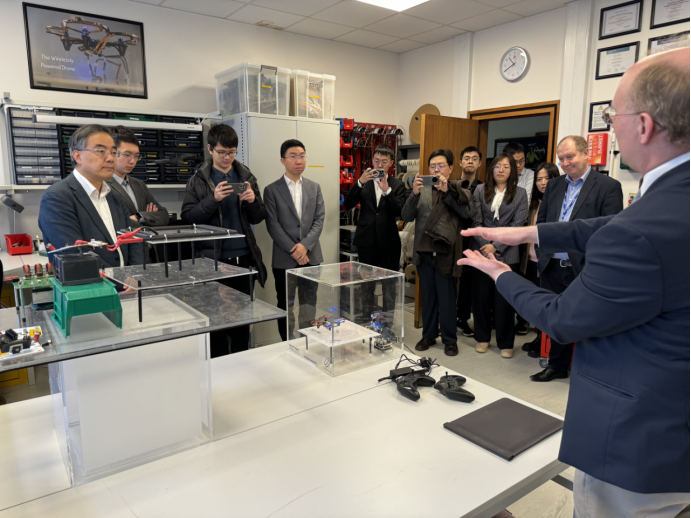
Attendees visited the laboratory for wireless power transmission
During the meeting, the participants visited the laboratories of power system simulation, power electronic transformation, and wireless power transmission at the Department of Electrical and Electronic Engineering, Imperial College London.
The Tsinghua University-Imperial College London Joint Research Center for Intelligent Power and Energy Systems was established in March 2019 and renewed its cooperation agreement in November 2022. It conducts collaborative research in several areas, including novel power system planning, integrated energy systems, low-carbon energy transformation, and power electronic equipment. It has undertaken two international cooperation projects, published more than 20 papers in collaboration, and jointly trained more than 50 doctoral students and postdoctoral fellows. Relying on this Joint Research Center, a new laboratory for novel power systems was approved by the Ministry of Education in 2023. The successful convening of this meeting plays a significant role in promoting the development of the Joint Research Center. Tsinghua University and Imperial College London have strong complementarity in the research of smart power and energy systems, and the Joint Research Center will continue to leverage the advantages of both sides to promote high-level research in the field of power and energy.

















 News & Events
News & Events